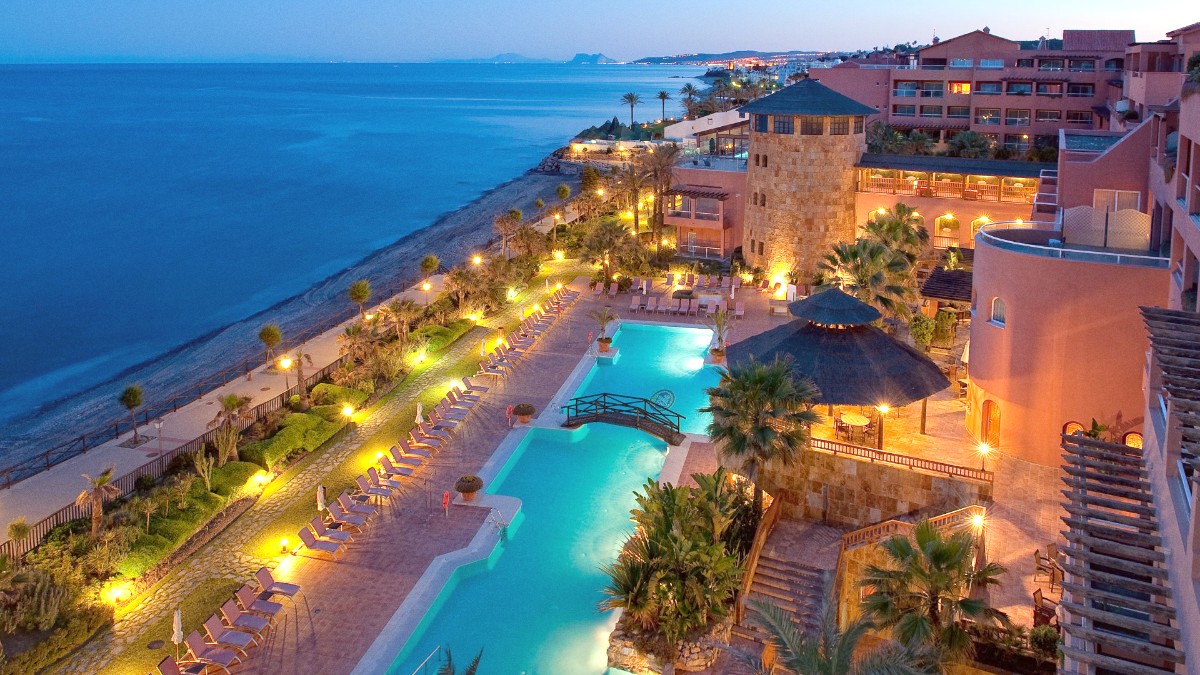
Andalucia, Spain
Respect protected areas like Sierra Bermeja. Stay on marked trails, avoid littering, and refrain from disturbing wildlife or removing plants. Support eco-friendly choices.
Utilize Spain's recycling system. Separate plastics/cans (yellow), paper/cardboard (blue), and glass (green). General waste goes into grey bins. Littering is not acceptable.
Andalusia faces water scarcity at times. Be mindful of consumption: take shorter showers, turn off taps, and reuse towels. Every effort counts for this precious resource.
Minimizing your ecological footprint in Estepona.
Consider Purchasing carbon offsets for flights from reputable providers. Some airlines present this option directly. Prioritize walking, cycling, or public transport over taxis or rental cars for local journeys.
Seek hotels or tour operators demonstrating commitments to sustainability. These might feature eco-certifications, utilize renewable energy, or support local conservation.
Reduce single-use plastic waste by carrying reusable bags, water bottles, and coffee cups.
When embarking on outdoor activities, choose gear from companies committed to sustainable practices and ethical production. Your equipment choices create an impact.
Operators like G Adventures offer ethical tours, focusing on community benefits and sustainability.
Learn MoreOrganizations such as The Rainforest Site contribute to conservation through their mission and store.
Support ConservationEvery choice, from accommodation to transportation and shopping, can positively impact the local environment and community.
Engage respectfully with Estepona’s culture and heritage.
Support local artisans and businesses upholding traditional Spanish and Andalusian crafts, music, dance (like flamenco), and culinary traditions. Buying authentic local products preserves these practices.
Learn and utilize basic Spanish phrases. Demonstrate politeness, patience, and openness to local customs. Spaniards value personal interaction and courtesy. Acknowledge and appreciate local traditions like later meal times or the afternoon siesta.
Generally, photographing public spaces and landmarks is fine. However, always seek permission for close-up photos of individuals, specifically children, and respect a "no" if expressed.
When visiting churches or other religious sites, dress modestly, covering shoulders and knees. Remove hats. Speak in a quiet voice and avoid disrupting services. Respect designated areas and refrain from touching religious artifacts.
Ensure your visit directly benefits the local community.
Choose locally owned businesses: restaurants, cafes, shops, and tour guides.
Look for "Hecho en España" or "Artesanía Local" on souvenirs. This supports fair wages and sustainable practices for local producers. Avoid mass-produced items.
If contributing, consider reputable local charities addressing social or environmental needs in Estepona, rather than direct cash to beggars.
Your consumer choices represent a direct investment in the local economy and cultural preservation.
How your visit benefits the local community.
Seek out and support locally owned businesses like restaurants, cafes, shops, and tour guides. This action directs more of your tourism spending into the local community.
When purchasing souvenirs, look for items marked "Hecho en España" (Made in Spain) or "Artesanía Local" (Local Craft). This practice promotes fair wages and sustainable methods for local artisans.
Avoid mass-produced souvenirs that typically do not benefit local economies. Your spending choices shape the character and economic vitality of the town.
Choose authentic local tapas bars and family-run restaurants. Their character and local flavors enrich your experience.
Visit the Mercado de Abastos for fresh produce. Purchasing directly from local vendors strengthens their livelihood.
Buy from small, independent shops in the Old Town. These businesses contribute significantly to the town's unique charm.